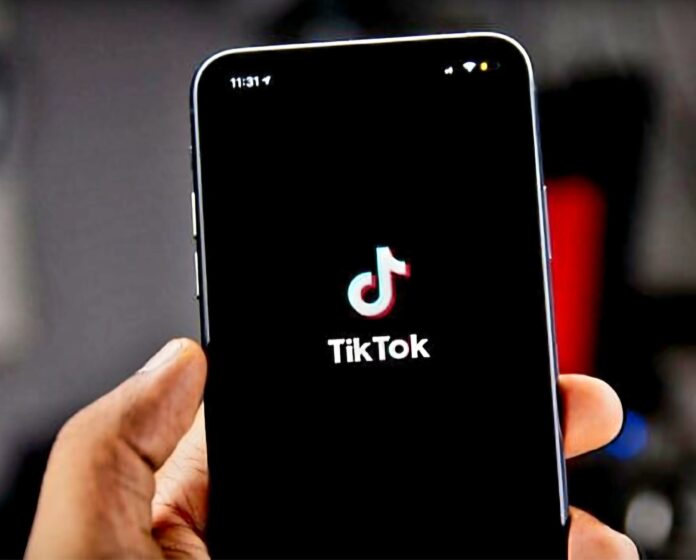- TikTok, owned by China’s ByteDance, stopped working in the United States late on Saturday and disappeared from Apple and Google app stores ahead of a law that took effect on Sunday, requiring the shutdown of the app used by 170 million American stores due to a national security law.
- Around 12 hours after shutting down, it was back for many users almost like it never left, attributing its return to a move by President-elect Donald Trump to save the app.
- TikTok welcomed users back with a notification that said: “Thanks for your patience and support. As a result of President Trump’s efforts, TikTok is back in the U.S.!
- US President-elect Donald Trump had earlier in the day indicated he would “most likely” give TikTok a 90-day reprieve from the ban after he takes office on Monday, a promise TikTok cited in a notice posted to users on the app. *
- The uncertainty led users and marketers to explore alternative platforms, including China-based RedNote. Rivals Meta and Snap had also seen their shares rise this month ahead of the ban, as investors bet on an influx of users and advertising dollars.
- Other apps owned by ByteDance, including video editing app Capcut and lifestyle social app Lemon8, were also offline and unavailable in US app stores as of late Saturday.
- TikTok CEO Shou Zi Chew is expected to attend the US presidential inauguration and attend a rally with Trump on Sunday, according to Reuters.
The potential TikTok ban in the United States and its implications for South Africa and Africa as a whole highlight the complex intersections of technology, politics, and economics. Below are key takeaways – challenges and opportunities for local content creators – this represents.
Implications for South Africa and African continent
- Economic Impact on Creators and Small Businesses
With over 2 billion users globally and over 17 million in South Africa as of 2024, making it one of the fastest-growing markets in the world, TikTok is a powerful economic driver in Africa, enabling content creators, influencers, and small businesses to monetise their work. In South Africa alone, TikTok has a penetration rate of over 30%, with hundreds of thousands of creators using the platform to generate income. This includes the likes of Princess Sachiko, SA’s most followed TikToker with 19.6 million followers at the time of writing this. Then there’s Wian van der Berg and Ryan Lombard with over 16 and 11 million followers respectively. A ban or significant restriction could stifle their earning opportunities, particularly in a country like South Africa, where youth unemployment is a major issue – reaching a staggering 60.7%. For creators in Africa, who rely heavily on TikTok for exposure and business opportunities, this would represent a significant economic setback. - Cultural Expression and Innovation
TikTok has become a hub for creative and cultural expression, allowing African voices to reach global audiences — an achievement that Boniswa Sidwaba, TikTok Head of Content Operations for Sub-Saharan Africa, holds with pride. “TikTok is a catalyst for economic growth, cultural trends, and social impact,” she remarked, reflecting on the platform’s transformative influence across the continent in 2024. She added: “We remain committed to nurturing a positive and inclusive environment where everyone can bring joy, have a unique voice, and a chance to shine.” From dance trends to educational content, the platform enables creators to showcase African culture, music, and stories. A ban or restrictions on TikTok could limit this cultural exchange and hinder Africa’s growing influence in the digital space. - Concerns over free speech and digital rights
African governments have already shown mixed attitudes toward TikTok, with bans in Senegal and Somalia and increased scrutiny in Kenya, Uganda, and Egypt. While some of these actions are justified on moral or societal grounds, critics argue they may also serve as tools for political control. The potential US ban on TikTok, citing national security concerns, could embolden African governments to impose further restrictions on the platform, using similar justifications. This raises significant concerns about the suppression of free speech and digital rights across the continent. - Youth engagement and access to digital platforms
TikTok’s ban in Africa would disproportionately affect the continent’s youth, who use the platform for entertainment, education, and community building. For countries like South Africa, where digital platforms play a role in fostering innovation and job creation, any restriction on TikTok could have long-term developmental implications. - The broader digital economy
Africa’s digital economy is growing rapidly, with platforms like TikTok contributing significantly to its expansion. However, outright bans may disrupt this growth, discouraging investment in local technology ecosystems and limiting the ability of startups and creators to thrive. TikTok’s global influence has provided a cost-effective, far-reaching means for African startups to engage audiences and leverage influencer marketing. However, a US ban that impacts TikTok’s global operations could ripple across these ecosystems, throwing some these companies out business. - Many startups that rely on TikTok for user acquisition or brand-building could lose momentum if the platform’s operations are disrupted globally due to the US ban.
- For platforms like Webfluential South Africa, TikTok’s first African influencer marketplace – which rely heavily on the global social video giant – the implications could include the loss of influencer Income in the continent. South African influencers participating in TikTok’s Creator Rewards Program via the service would lose a major revenue stream. Furthermore, TikTok’s algorithm offers niche African startups access to global audiences in a way that other platforms may not replicate. Losing this capability could hamper their international growth prospects.

